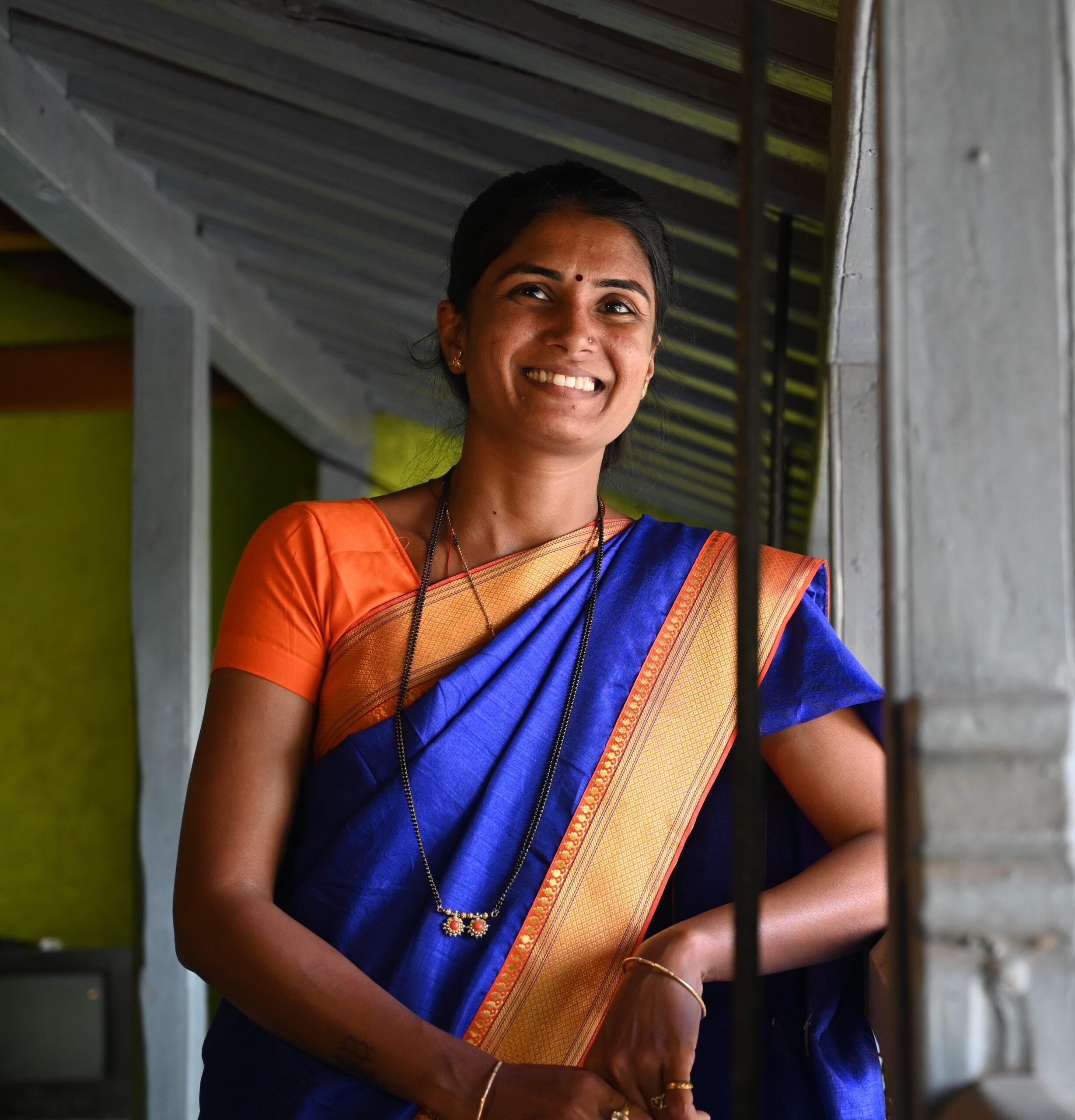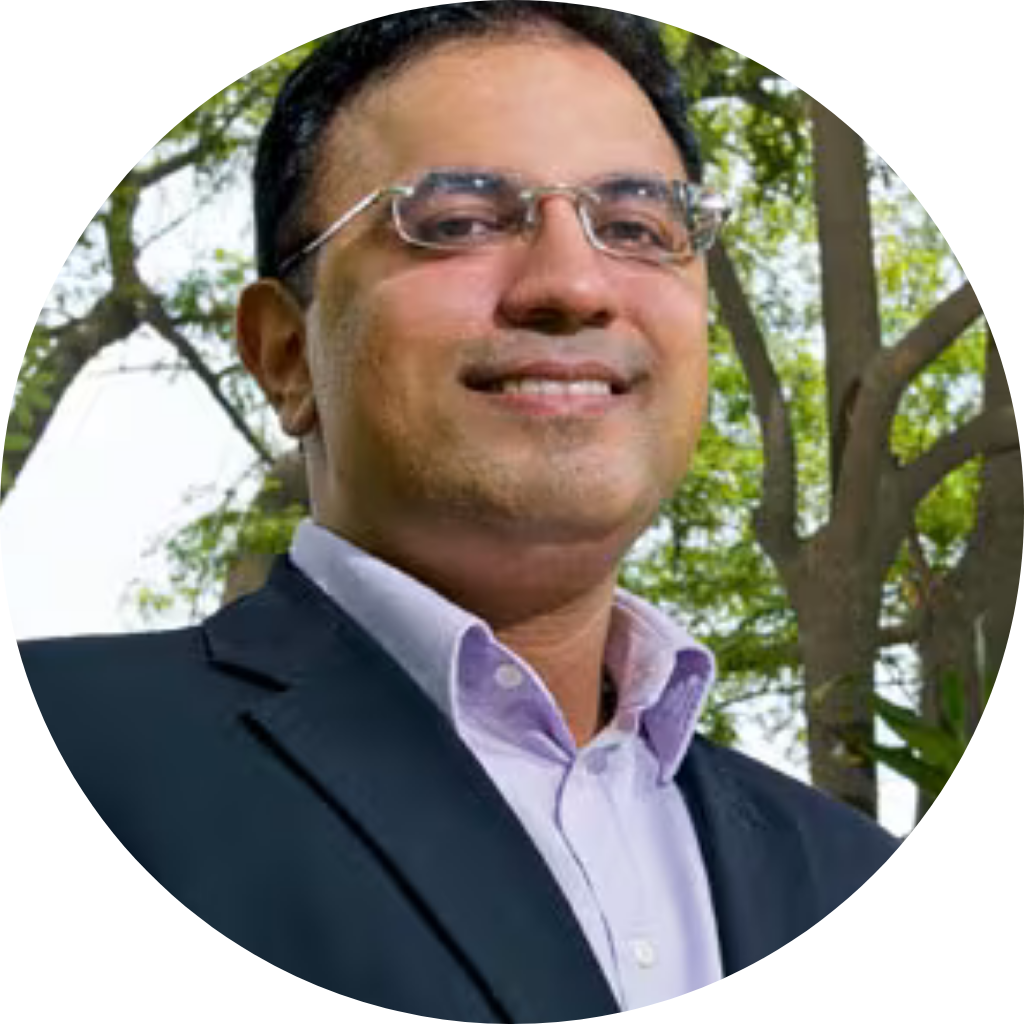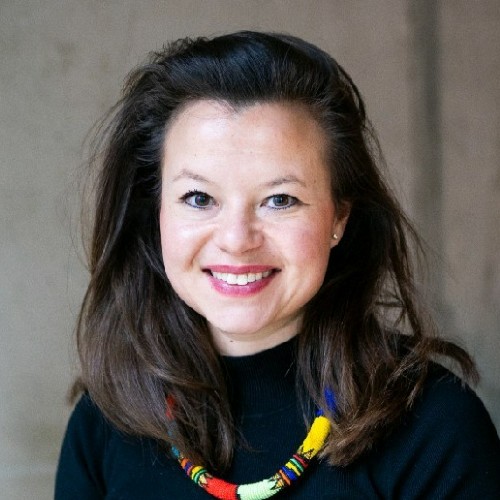The Wheeler Institute for Business and Development, in partnership with Dharma Life Labs, hosted the Power of Business: Bringing together global and local voices event, featuring two panel discussions that explored how businesses can drive meaningful social impact. This blog is about the second panel, Flourishing Careers, Flourishing Children: Lessons in Balancing Family and Work.
Speakers discussed the dual demands of career and caregiving as major barriers to gender equality. For many women, lack of support leads to stunted professional growth, economic dependency, and vulnerability. In cultures with deep gender norms, this challenge is magnified, often forcing women to sacrifice career ambitions to care for children or elderly family members.
Moderated by Gaurav Mehta (founder of Dharma Life, and LBS alumni), this panel, brought together leaders from diverse fields: Tabitha Morton (Executive Director of UN Women UK), Felizitas Lichtenberg (Global Head of Diversity & Inclusion at SumUp), Rohini Patil (Dharma Life Entrepreneur), Lucy Davis (former Head of Responsible AI at Google, and LBS alumni), and Meera Shah (Head of the Smallholder Farmer Portfolio at Shell Foundation). Together, they explored how governments, corporations, and communities can collaborate to ease the care burden and empower women to pursue both family and professional fulfilment. The panellists shared insights for building a more inclusive approach to caregiving and career growth—ultimately benefiting women, families, and society as a whole.






Government and Corporate Responsibilities
The discussion revealed a need for coordinated action between the public and private sectors. On the government side, Morton called for a fundamental shift in policy planning: “Every government has growth plans for their region or country. Yet care for the elderly and children is never broadly included.” She argued that national planning must elevate care to the same priority level as education and healthcare.
Observing the significant differences in government support across countries, Lichtenberg emphasised the role of corporations in bridging these gaps. She gave examples of how some enterprises respond through comprehensive reforms: establishing equal parental leave policies, offering flexible work arrangements, creating support programs for employees returning from career breaks, and conducting bias training for hiring after career breaks.

The role of technology
“For society to flourish, women need to flourish,” stated Davis. She presented technology as a powerful tool to address the caregiving challenge, enabling remote work options, flexible schedules, and tools like AI to simplify multitasking. However, Davis cautioned against technology increasing the burden on women by creating expectations for heightened efficiency. “Technology should enable everyone, not just increase expectations on women,” she emphasised, advocating for balanced use to support work-life integration across the board.
Patil expanded on this perspective, sharing how technology has played a transformative role in her own journey. Despite not having a formal educational background, she has leveraged digital tools to grow her business, competing with enterprises beyond her village. “Technology has been a leapfrogging process for us,” she explained, describing how it democratised access to information and enabled her to expand her reach at a much faster pace.
The Ecosystem Approach
“It takes a village to raise a child,” remarked Shah, emphasising the importance of a broad support network in enabling caregivers, especially women, to pursue professional opportunities. Shah credited her own ability to maintain a career to an ecosystem of affordable, trustworthy care options and flexible employers, which work together to balance her family and work responsibilities. This interconnected support demonstrates how collective efforts create the foundation women need to thrive both at home and professionally.
Patil’s work in rural India illustrates how this ecosystem approach can be adapted to meet the unique needs of her community. Faced with limited childcare options that often force women to leave the workforce, along with eldercare responsibilities that further constrain them, Patil launched a centre where women can bring their children, receive training, and work alongside them. This centre allows women to earn an income and build skills without neglecting their caregiving roles, effectively creating a local ecosystem of support.

Diversifying the conversation
The panel noted that transitioning to more equitable childcare responsibilities can be challenging, especially given established social norms, as illustrated by Patil’s experience in rural India. Despite the clear benefits of the centre she established to support women balancing work and caregiving, there was initial hesitation from men and elders in her community because of traditions. “Even if solutions exist, it doesn’t really mean they’re taken up,” she explained. However, she has observed gradual acceptance as more people see the positive impacts of this initiative.
To address the care burden effectively, the panellists emphasised the importance of engaging men in caregiving roles and challenging myths that “women are natural carers and men are natural leaders.” While men have begun sharing some physical caregiving tasks, women still predominantly carry the mental load of organising and planning.
The discussion made it clear that achieving gender equality in both caregiving and career progression requires a unified effort from governments, corporations, and communities. Without comprehensive policy reforms, technological advancements, and supportive ecosystems, women will continue to bear a disproportionate share of caregiving responsibilities, limiting their professional opportunities. A key takeaway was that the path forward involves empowering men to fully engage in caregiving, particularly as economic pressures push most households to rely on dual incomes. As the panellists concluded, “Let’s not bash men. Let us empower men,” highlighting that shared responsibilities not only foster more equitable outcomes for women but also contribute to stronger, more resilient families and communities. Only through this collective approach can we create a more inclusive and sustainable future for all.
The event was supported by London Business School’s Women in Business, Social Impact Club and India Club.
About the event
The Power of Business – bringing together global and local voices was a collaboration with Dharma Life Labs is an initiative focused on advancing research and implementing scalable solutions in rural India, fostering inclusive growth through innovation and strategic partnerships. The event was part of their Voice of the Village series, which brings people together to discuss challenges facing rural Indian communities and was the first in-person gathering.
This panel discussed how balancing career and caregiving presents barriers to gender equality. They discussed the need for coordinated efforts from governments, corporations, and communities to support women in both family and professional roles, emphasising the importance of shared responsibilities and inclusive policies.
You can read the blog post about the first panel The Power of Business: Innovating to Empower here where expert panellists discussed how businesses can drive social impact through innovation, essential products, services, and job creation. They explored the challenges of balancing profit with purpose and the role of business in fostering sustainable, inclusive growth.
About the speakers

Rohini Patil embarked on her Dharma Life entrepreneurship journey in mid-2016, having previously never used a smartphone or the Internet. Through Dharma Life’s digital literacy program, Rohini transformed her small beekeeping business, started in 2014, into a thriving enterprise by leveraging online tools for promotion and learning. She now manages her own website and raises awareness about clean energy, nutrition, and social impact products like water purifiers and solar lights in her village and neighbouring areas. Rohini also supports 10 self-help groups, handles their accounts and gained notable public speaking experience through a Sarpanch election candidacy. Recognized for her achievements, she won the “Power Woman Award, 2019” by Woman Hike. Rohini proudly represents the success of Dharma Life’s women entrepreneurship model, highlighting her commitment to improving lives at the grassroots level.

Gaurav Mehta founded and leads Dharma Life, a non-profit-owned social enterprise that trains and supports local women entrepreneurs to deliver solutions for rural development challenges in India. Dharma Life has reached over 45,000 villages and impacted over 13 million lives with their products, services and programs that address clean energy access, climate action, gender rights, health, digital education, and livelihoods. Gaurav is a World Economic Forum Young Global Leader, an LBS MBA Graduate of the Decade, and a BMW Foundation Young Leader.
…..
…..

Felizitas Lichtenberg is the Global Head of Diversity & Inclusion, Wellbeing and Sustainability at SumUp. She established the Diversity & Inclusion and ESG strategy at SumUp and drives initiatives internally and externally. Before SumUp, she spent ten years at Vodafone, where her last position was Global Lead for Diversity & Inclusion. Felizitas is an Intercultural Business Trainer, an Organisational Change Manager and a Systemic Transactional Analysis Consultant.
……
……

Meera Shah is the Head of the Smallholder Farmer Portfolio at Shell Foundation. Leading the foundation’s strategy and investments in agriculture, she focuses on increasing the incomes of smallholder farmers in Sub-Saharan Africa and India. With over 12 years of experience, Meera has successfully seeded, scaled, and provided strategic guidance to a diverse range of pioneering social enterprises in Africa and India. These enterprises address critical challenges like access to energy and sustainable mobility for low-income consumers. Meera has co-founded two ventures and holds several board positions within the portfolio. Prior to joining Shell Foundation in 2012, Meera worked in various commercial roles within the Shell Group. She holds a degree in Economics, Politics, and International Studies from the University of Warwick.
….
…..

Tabitha Morton is Executive Director of UN Women UK, whose mission is to ensure every woman and girl has access to safety, choice and a voice. UN Women is the only global organisation working to make gender equality a reality in every way: from grassroots programmes with women and girls, to changing attitudes, and helping governments design gender-equal policy. Tabitha became the Chair of domestic abuse charity Standing Together Against Domestic Abuse, working to gendered violence. Before this Tabitha was Deputy Leader of the Women’s Equality Party and also led a cross-party organisation campaigning on issues from the climate crisis, equal representation in government and reform of the mental health and care sectors. Her commercial knowledge was honed from 15 years in the construction industry being the first woman on the UK board of her organisation.
……….

Lucy Davis is a Speaker and Lecturer in Tech & Society. Lucy is the former Head of Responsible AI at Google. Lucy is an LBS Alum, having completed an MBA at London Business School in 2010 and is currently a candidate for a Masters degree in AI Ethics/ Practical Ethics at the University of Oxford.
………
About the author

Juliana Escobar Díaz (LBS MBA 2025) is an Outreach and Communications Intern at the Wheeler Institute for Business and Development. Prior to joining London Business School, Juliana spent four years at McKinsey & Company as a Location and Business Analyst, based in Bogotá. She has a keen interest in business for impact and business as a force for good.
